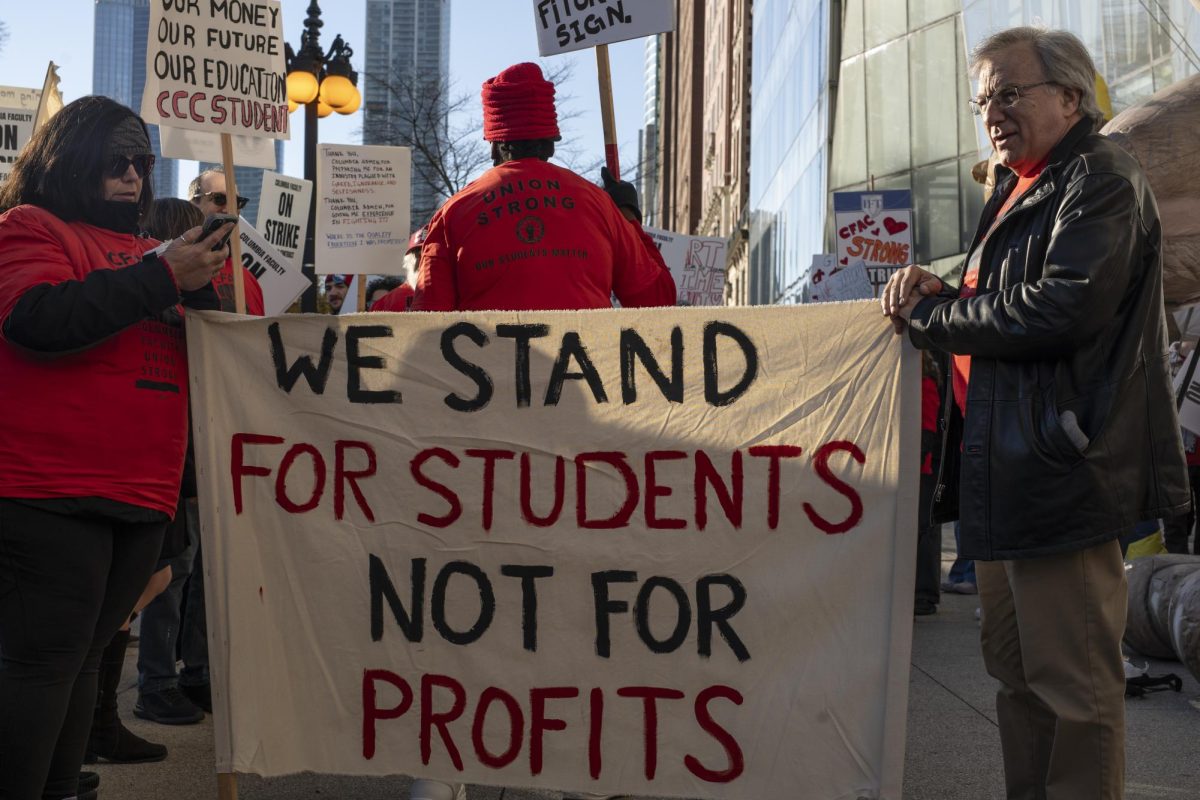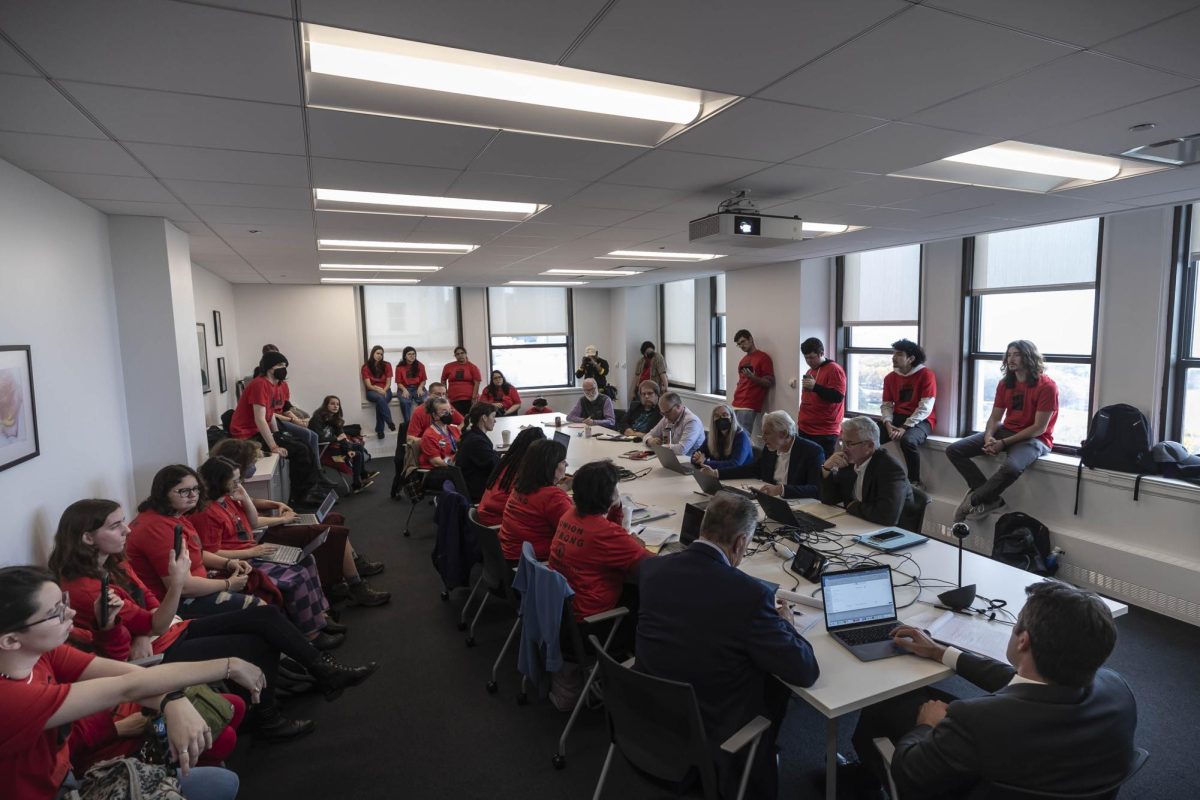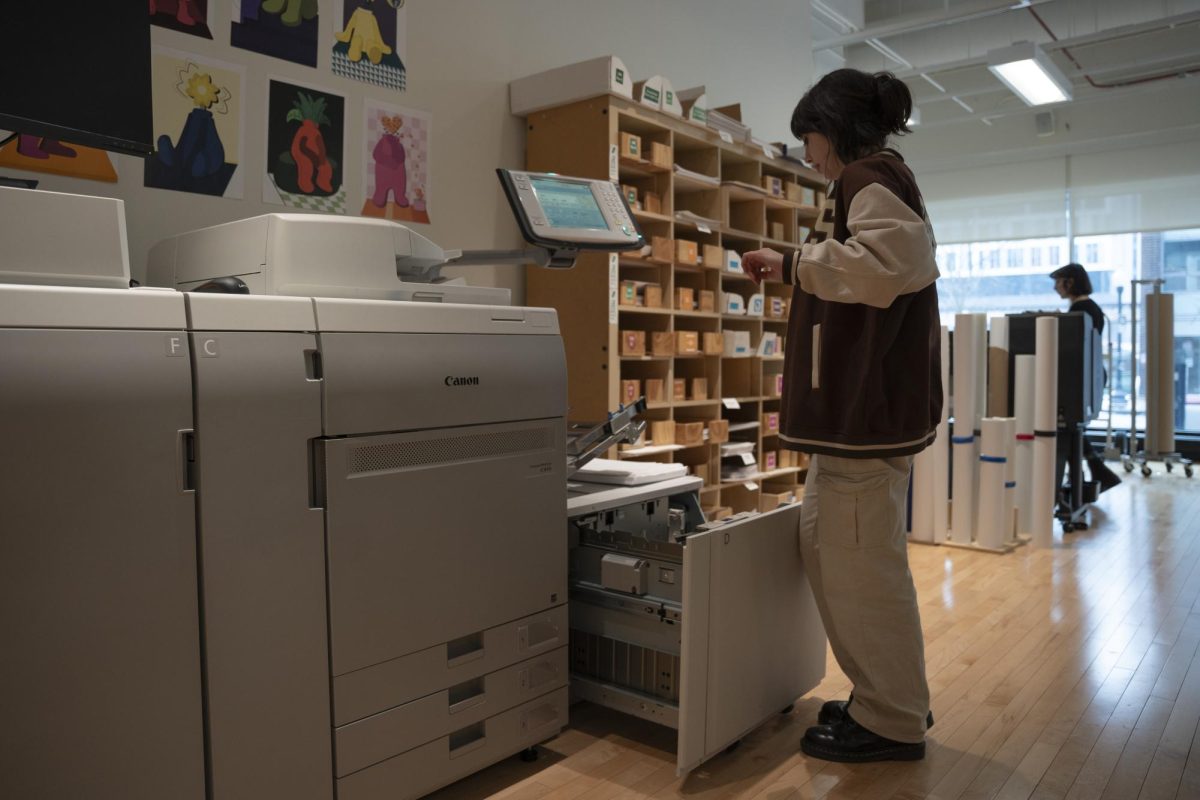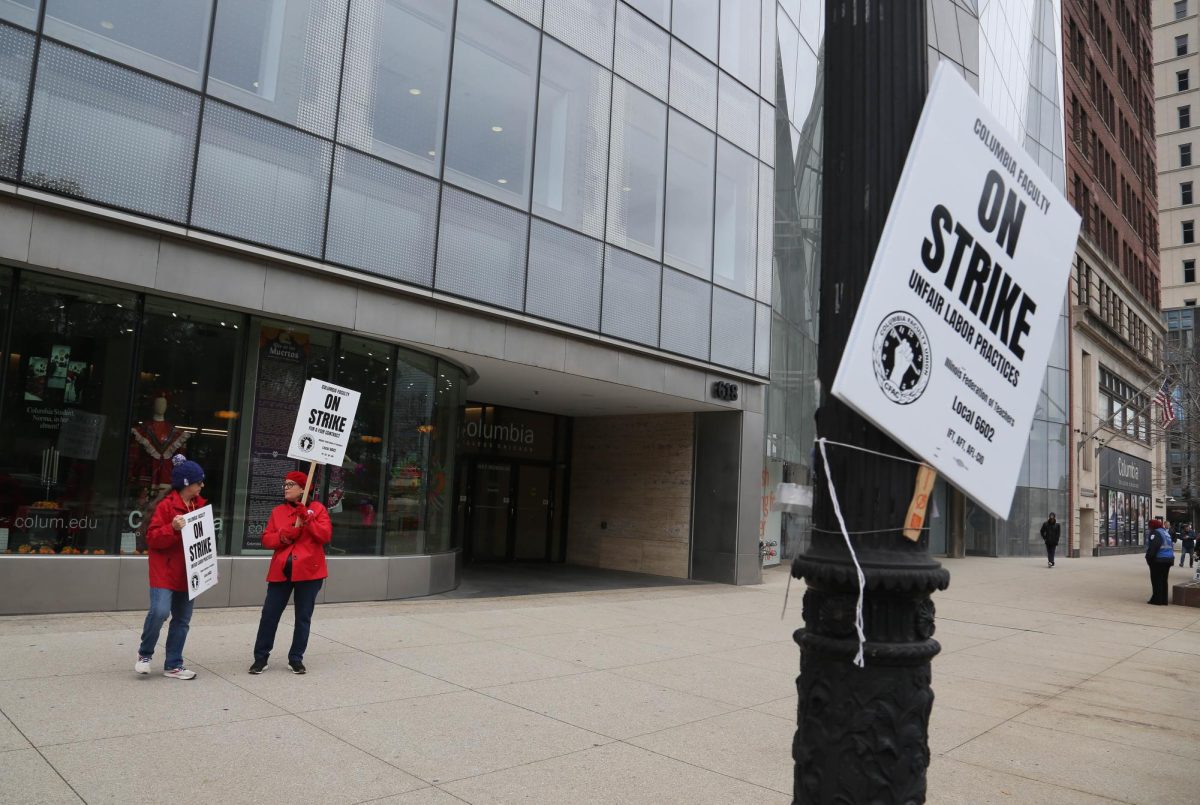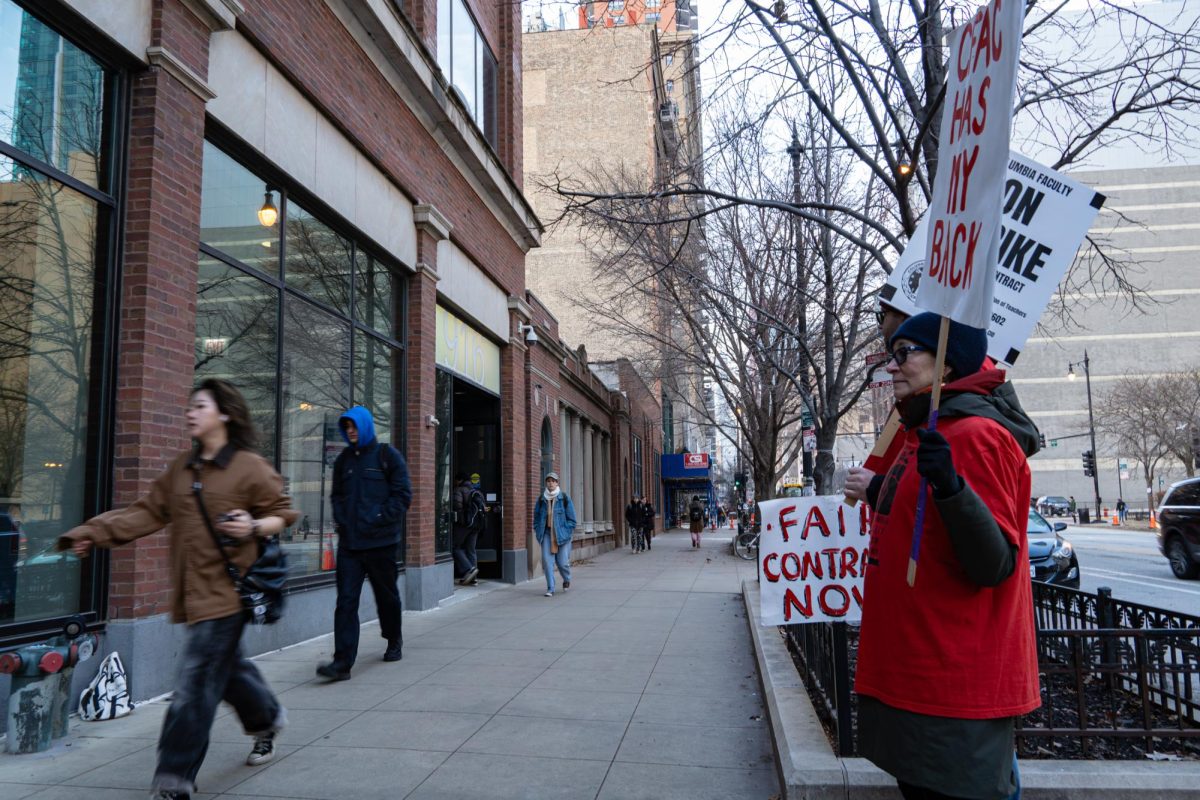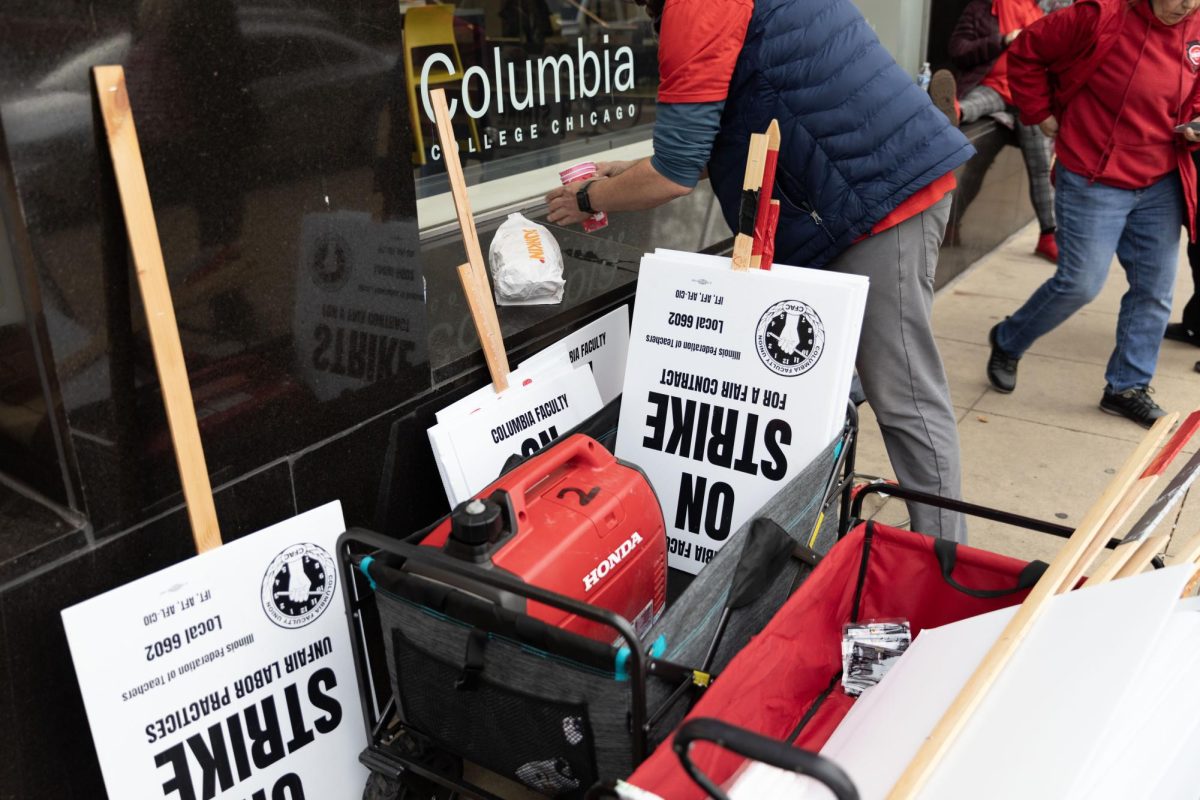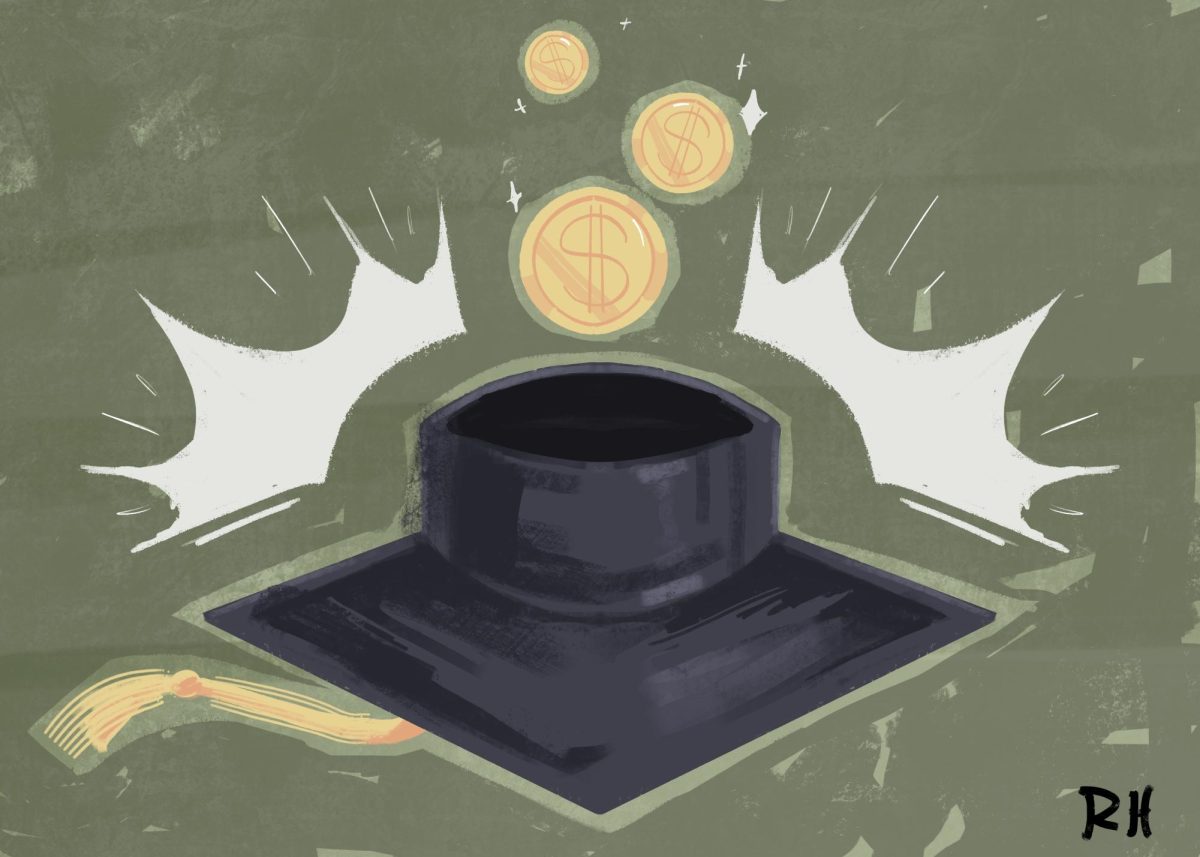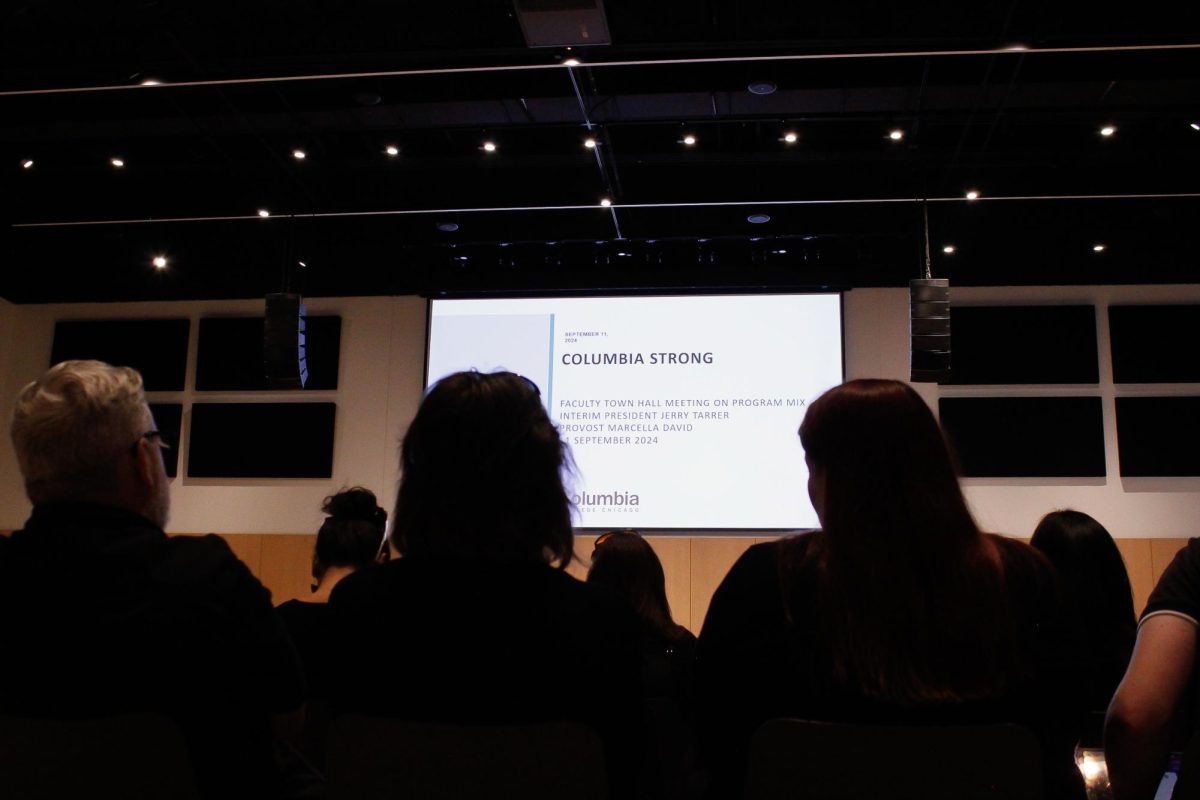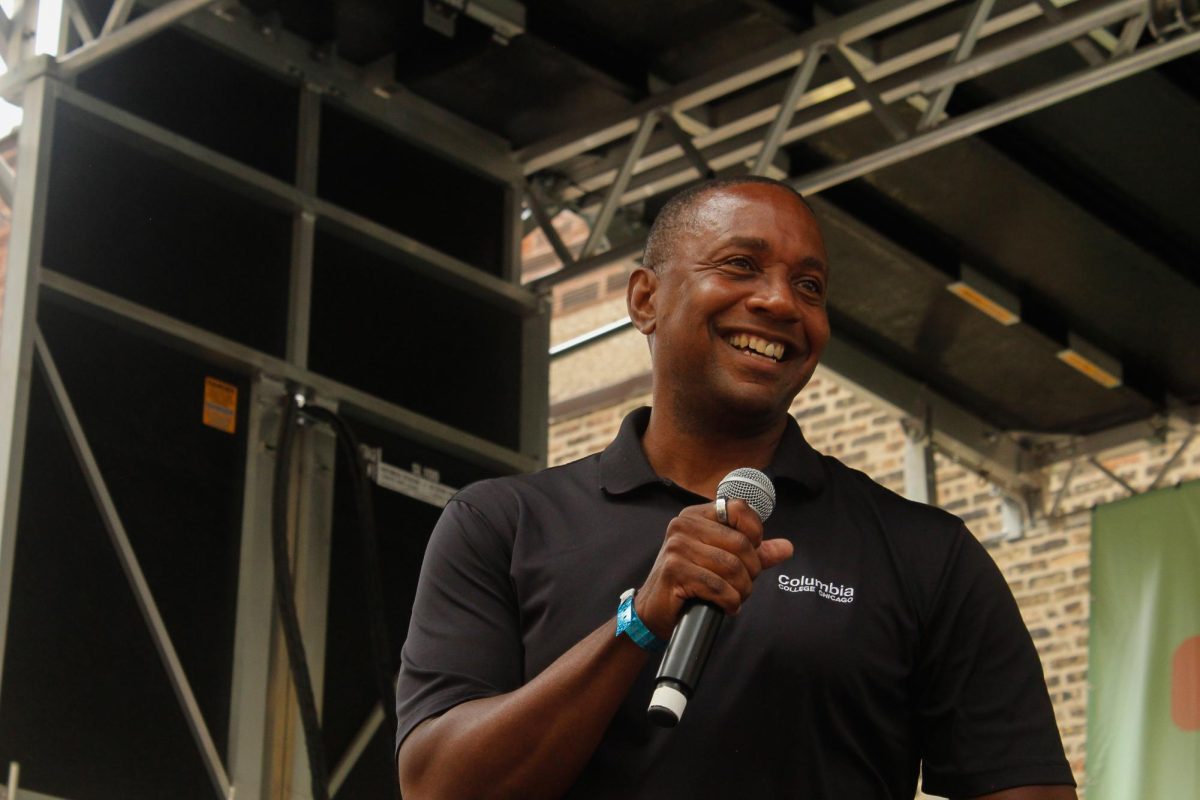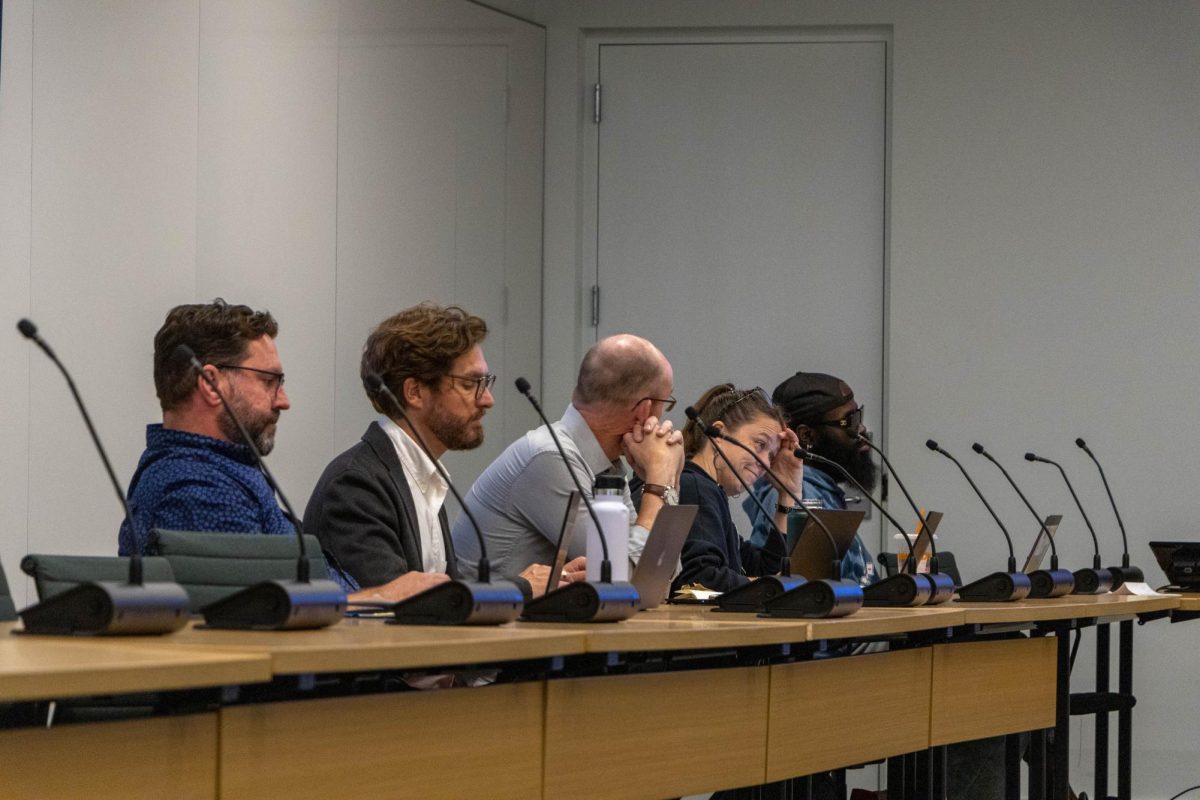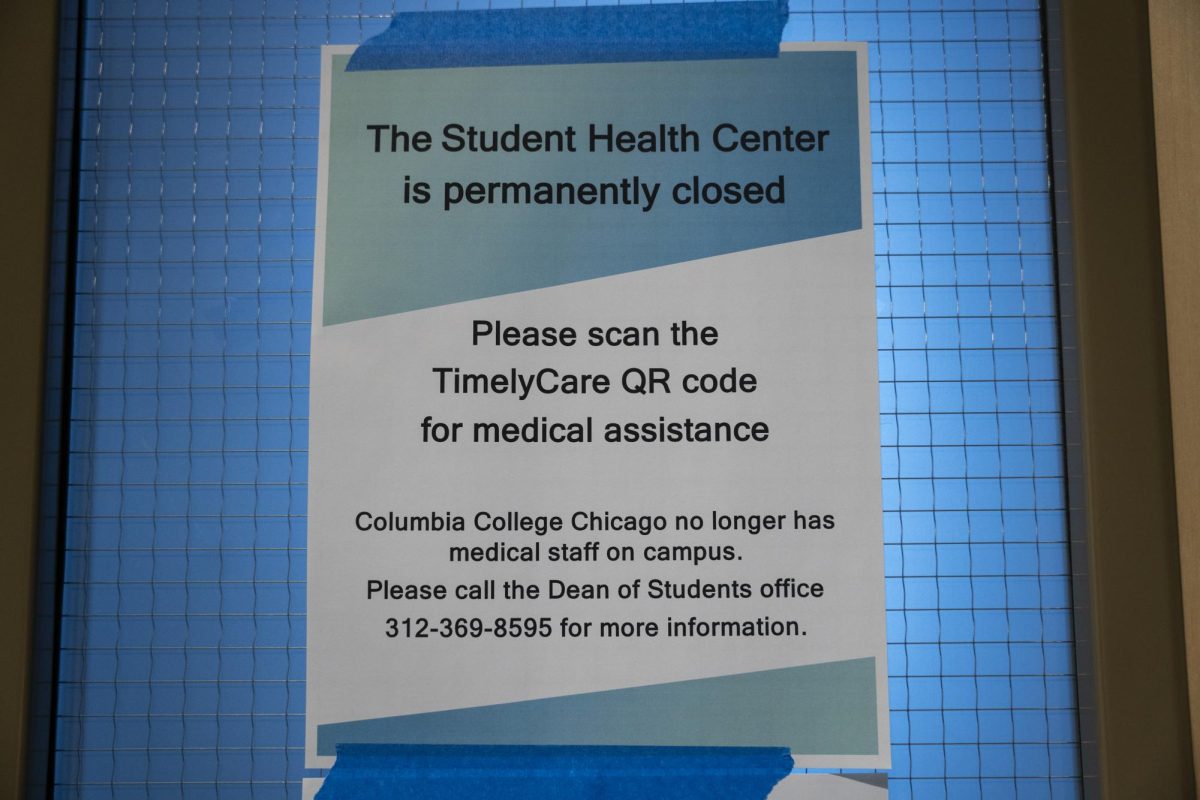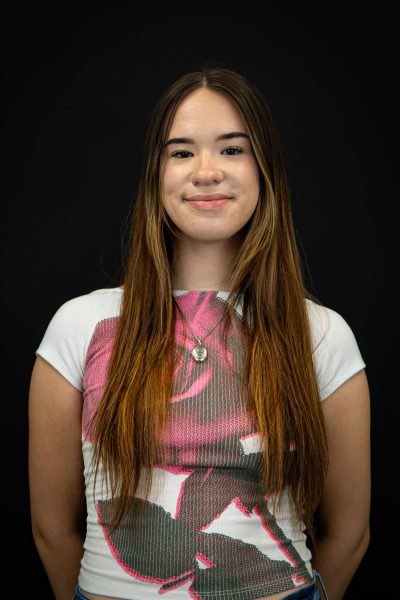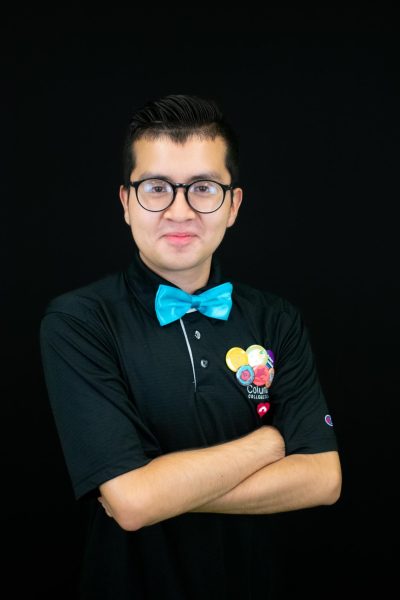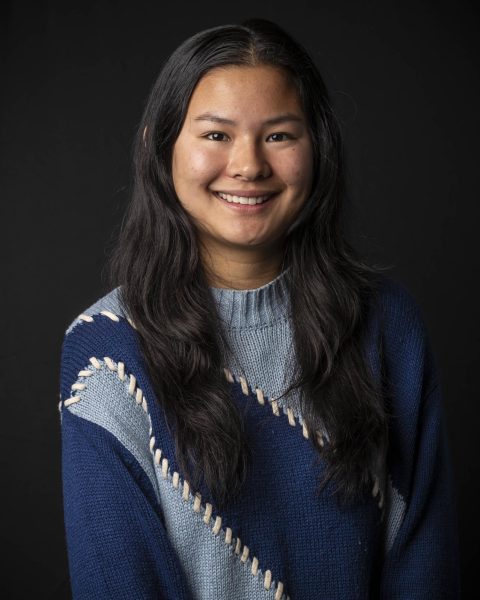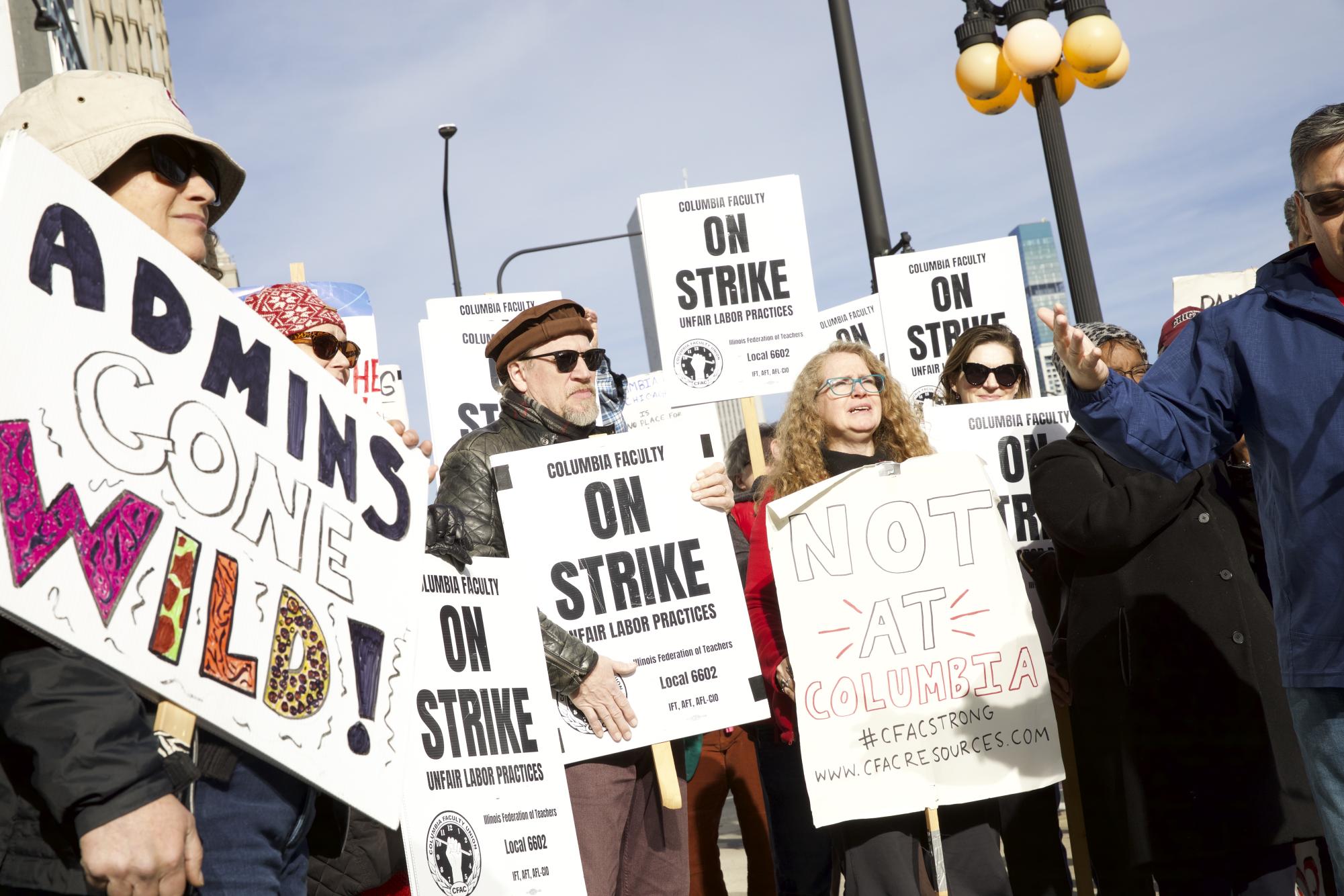
Full-time faculty members want decisions about curriculum and course caps to be made at a departmental level and not with a central “advising” committee that the part-time faculty union is pushing for in negotiations.
The creation of the committee is one of the key demands being made by Columbia’s part-time faculty union, which went on strike Oct. 30 over cost-cutting measures the college is taking to address a $20 million budget gap. It has accused the administration of leaving them out of the discussions over course cuts and increases in some class sizes.
During the final Faculty Senate meeting of the semester on Friday, Dec. 8, President Madhurima Chakraborty said both the college and the union, known as CFAC, have said that there is the possibility of forming a “central advisory committee” that would discuss class sizes.
Should the committee be put into place, it would be made up of administration and part-time faculty who would be responsible for discussing what an appropriate cap would be for the course whether it was taught by part-time or full-time faculty.
Full-time faculty want to make sure they also are part of those discussions, Chakraborty said.
“We made it very clear to the provost office, and I don’t think it was a surprise for that office to hear that we feel that any kind of a central committee is against the principle of faculty owning the curriculum,” Chakraborty said.
Faculty members said curricular decisions should be happening at a “programmatic and departmental level.”
Chakraborty said the Senate leadership invited Columbia’s part-time faculty union to participate in a conversation about how to resolve some of the differences around curricular changes. But CFAC leadership declined, refusing to meet with faculty members who may have crossed the picket line to finish the semester for a striking instructor.
Some of the college’s 221 full-time faculty members, as well as staff and outside professionals, are teaching up to double their regular course load in place of the remaining 347 part-time instructors that are still on strike. Department chairs began assigning replacements following fall break to help students complete the semester and earn credits needed for graduation.
The college and union have met five times with a federal mediator to try to resolve their dispute but have yet to reach an agreement to end the strike.
The date for the next bargaining session with the mediator hasn’t been scheduled, Union President Diana Vallera said during a press conference earlier in the day.
“The administration continues to refuse to come to the bargaining table and bargain in good faith,” Vallera said. “They demanded the mediator, and we attended four sessions with the mediator, and they did nothing. They continue to show up and do nothing at the bargaining table.”
Lambrini Lukidis, associate vice president of Strategic Communications & External Relations, said the college offered to bargain on Friday, but the union declined. The college has offered to bargain again on Sunday, Dec. 10, she added.
The union press conference was held outside of the 600. S Michigan building, and had about 40 part-time instructors on a picket line. A few students joined them.
Among the speakers was Fred Redman, AFL-CIO’s secretary treasurer, who said, “You picked the fight with the wrong group of workers at the wrong time.”
Later at the Faculty Senate meeting, Senior Vice President and Provost Marcella David shared a statement before taking questions from faculty members.
“We were hoping to end so that people would come back to the classroom before the end of the semester. What we wanted to do was to reset and rethink about where we are now at a moment in time where coming back before the end of the semester is not a realistic option.” David said.
What the provost said about the central committee:
“We haven’t actually agreed to that and we would have to sit down and make sure that our expectations were consistent on our side and on the union side. But that is the only way that I would proceed with such a committee because I really do believe that full-time faculty, through regular processes, should be making decisions about curriculum.” David said.
More from the meeting:
Chakraborty shared that the Executive Committee of Faculty Senate has met with the provost twice since its November senate meeting to raise the following points:
- Full-time faculty members cannot be coerced into taking on classes due to the strike.
- The provost’s office should recognize that full-time faculty members’ increased workload during the strike was “untenable.”
- Workload expectations cannot change for full-time faculty members following the strike.
Faculty members also discussed uncertainties regarding this semester’s course evaluations and how they should be handled due to the replacement of instructors.
David told faculty that the college has been working to ensure that the spring semester provides less “chaos” than the past several weeks.
In an interview with the Chronicle after the meeting, Chakraborty said that the work that full-time faculty is doing right now is “not sustainable or tenable.”
“We want there to be clear communication about the spring semester and what it will look like.” Chakraborty said.








